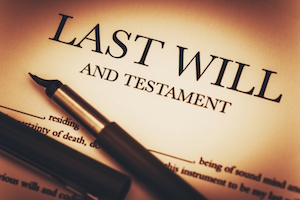Wright Hardware installed a 500-gallon liquid propane tank at the residence of Charles and Linda Benefiel in rural Clinton County, Indiana. The Benefiels used propane to heat their home. When the Benefiels called Wright Hardware many years later to report that had they no heat, the company sent an employee, William Taylor, to determine the cause of the problem.
Taylor discovered that the control board and gas valve were not functioning. Before replacing the parts, he shut off the gas to the furnace and disconnected the piping. After making the repairs, he reassembled the piping to the furnace and used a manometer to check the flow pressure.
Taylor also tested the regulator on the new gas value to assure that it was producing the correct pressure. Taylor soap tested the fittings and did not detect any leaks, but he performed no other leak testing.
About a week later, a propane gas leak caused an explosion, destroying the home and killing the Benefiels. Their estate brought a lawsuit against Wright Hardware, alleging that negligent repairs caused the leak.
Experts who investigated the explosion could not determine the location of the leak, although they agreed that it occurred inside the home. Too little remained of the propane system to permit the experts to determine the source of the leak or the nature of the ignition that caused the explosion. It was clear, however, that a spark or flame ignited propane gas somewhere within the home.
Trial Evidence
Indiana’s Fuel Gas Code requires a leak test of a propane piping system to be performed after a new installation or if there has been an “interruption of service.” The phrase “interruption of service” is not defined. The Benefiels’ estate argued that service was interrupted when Taylor shut off gas to the furnace and disassembled the piping.
Wright Hardware pointed out that only the gas flow to the furnace was shut off. Since gas continued to flow to the rest of the system, Wright Hardware argued that there was no interruption of service.
The estate alleged that Wright Hardware’s employee was negligent because he failed to perform leak testing. At trial, the Estate’s experts testified that Taylor needed to leak test the Benefiel gas system because shutting off the gas at the shut-off valve to the furnace constituted an interruption of service.
Wright Hardware’s expert, Todd Hetrick, testified that he contacted the International Code Council (ICC), which wrote the standards upon which the Indiana Fuel Gas Code is based. Hetrick testified that he asked whether the phrase “interruption of service” applies “only to an interruption in fuel gas supply to the point of delivery (i.e., an outage of fuel gas supply from an onsite tank or utility to a customer’s property)” or whether it encompasses “a lack of fuel gas supply to a branch or isolated section of the piping system existing within a built structure, downstream of the point of delivery.”
The ICC responded to Hetrick by email. Over objection, the judge allowed Hetrick to read to the jury a portion of the email that that defined interruption of service as “the utility has shut off the supply at the point of delivery, or an onsite fuel tank has been depleted.” The jury returned a verdict in favor of Wright Hardware and the estate appealed.
Expert’s Reliance on Hearsay
An expert is entitled to rely on inadmissible evidence when forming an opinion if experts in the field would reasonably rely on evidence of that nature. A more difficult question is whether inadmissible evidence can be conveyed to the jury through testimony of the expert who relied upon it.
The estate pointed out that Hetrick followed the procedure on the ICC’s website for obtaining a staff opinion. The same website points out that staff opinions are not official positions of the ICC. The estate objected that the staff member’s opinion was hearsay since the staff member was not present in court and subject to cross-examination.
There is no doubt that the email constituted hearsay. The appellate court noted that some hearsay information that experts reasonably rely upon can be admitted into evidence so that the jury can use it to evaluate the basis for the expert’s opinion. Information from consulting experts and “authoritative sources” might fall within the category of hearsay that can be communicated to a jury via an expert.
On the other hand, an expert cannot simply regurgitate hearsay that goes to an ultimate issue in the case if the expert accepts the hearsay at face value and does not rely on his or her own expertise to determine whether the hearsay is reliable. An expert “may not simply repeat opinions of others or announce that other experts concur with his opinion with respect to the case.”
In this case, the staff member’s opinion was not “authoritative” because the staff member’s interpretation of the code language was not the ICC’s official interpretation. Nor did Hetrik rely on his own expertise to determine whether the interpretation offered by the staff member was correct. He simply accepted the opinion and repeated it to the jury.
In any event, Indiana altered some of the ICC standards before adopting them. An ICC staff member’s opinion as to the meaning of the ICC standards cannot be considered an authoritative explanation of Indiana’s code.
The Court of Appeals reversed the judgment and remanded the case for a new trial because the inadmissible hearsay may have influenced the verdict. A more fundamental question that the court failed to address is whether a jury should resolve the meaning of a term in the administrative code. Judges are usually regarded as experts in the law, and the legal meaning of language used in a regulation is usually a question of law for the court, not experts, to decide.












